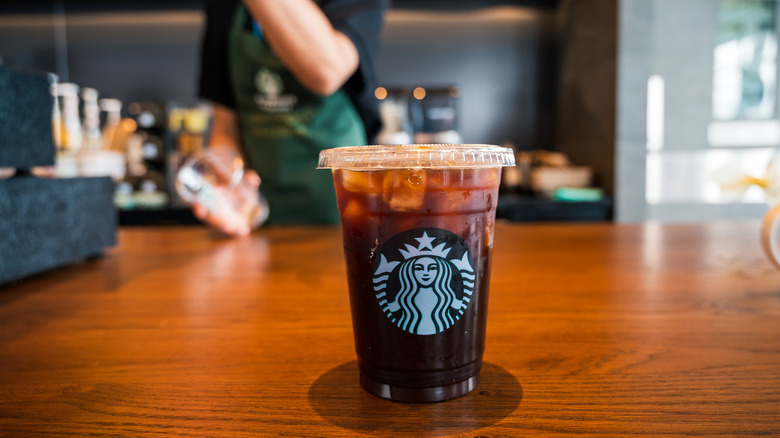What These Striking Starbucks Workers Accused Management Of Doing
On Saturday, Starbucks workers went on strike at a location in Overland Park, Kansas. In a statement shared with KSHB, one barista explained that the move was prompted by how the district manager would allegedly corner workers in one-on-one meetings. The worker claimed that the purpose of these meetings was to threaten any support for a union with schedule changes or demotion.
When The Kansas City Star showed up to interview the strikers, another barista, Hannah McCown, said that the employees pushing for a union faced pushback in the form of untenable schedules. Allegedly, their Starbucks location wanted them to work on days when they couldn't. "They told me my availability would no longer work and that's only after we started to organize," McCown explained.
A few weeks earlier, two Starbucks cafes in the Kansas City area, which includes Overland Park, held rallies for unionization and accused the company of employing anti-union tactics (via KCUR). "We believe we are best in our direct relationship with one other so that we can keep hearing directly from one another, without a third party between us," Sarah Maier, a spokesperson for Starbucks, said at the time. "But that said, we also fully respect our partners' legal right to unionize." However, the degree to which it respects partners' right to unionize will be decided by the National Labor Relations Board as the release given to KSHB also states that charges have been filed.
Starbucks and the National Labor Relations Board are seeing a lot of each other
The strike in Overland Park is not the only story in which charges against Starbucks have been filed with the National Labor Relations Board to have occurred in the previous week. For example, The Seattle Times shared a complaint claiming that "[Starbucks] has been interfering with, restraining, and coercing employees" on the Ides of March.
In fact, there are currently 209 open cases involving Starbucks in the National Labor Relations Board's database. For context, there are only 91 closed cases. The vast majority of the charges have been piling up in recent weeks as more and more stories about how Starbucks has faced the wave of unionization efforts. Perhaps multiple stories about charges of anti-union tactics have made the continued statements of respecting the right to unionize sound hollow to employees. It probably does help that Howard Schultz, who is slated to return as the interim Starbucks CEO in April, allegedly compared unions to stories about concentration camps last year, per "media reports" cited by Reuters.
However, the mounting stories seem to have become too large for investors. On March 16, Restaurant Business reported that more than 70 shareholders wrote a letter to Starbucks insisting that the company settle into a more truly neutral stance towards unions. In part, they were worried by the increasing number of Americans who said they would stop ordering from Starbucks if such tactics continued.

